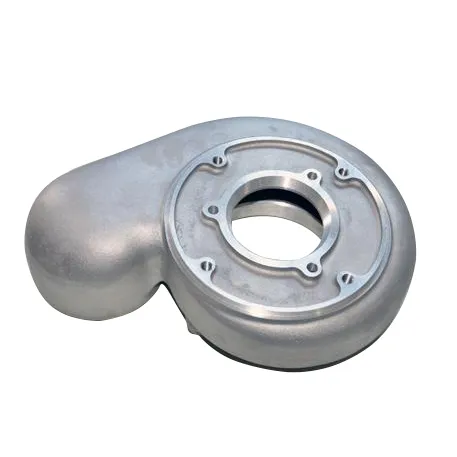Mobile:+86-311-808-126-83
Email:info@ydcastings.com
Innovative Solutions for Secure Pipe Attachments with Screw Caps in Various Applications
Understanding Pipe Screw Caps Essential Components in Pipe Systems
In various industries, including plumbing, construction, and manufacturing, the importance of effective sealing and closure solutions cannot be overstated. One of the critical components that play a vital role in ensuring the integrity of pipe systems is the pipe screw cap. These caps are essential for securing the ends of pipes, preventing leaks, and maintaining the overall functionality of piping networks.
Definition and Functionality
A pipe screw cap, often referred to simply as a screw cap, is a threaded closure that is designed to fit onto the end of a pipe. These caps are typically made of durable materials such as metal, plastic, or clamped rubber, depending on the application at hand. The primary function of a pipe screw cap is to provide a secure seal at the end of a pipe to prevent the escape of fluids or gases, as well as to protect the pipe’s interior from external contaminants.
Types of Pipe Screw Caps
1. Material Types Pipe screw caps can be classified based on the materials used, such as polypropylene (PP), polyvinyl chloride (PVC), steel, brass, or aluminum. Plastic caps are lightweight, resistant to corrosion, and often used in chemical applications, while metal caps provide higher durability and can withstand higher temperatures and pressures.
2. Threading Types The threading on the cap can also vary, with some having coarse threads for quicker attachment and detachment, while others utilize fine threads for a tighter seal. The choice of threading is crucial for ensuring a secure connection that can withstand the pressure of contained fluids or gases.
3. Sizes and Dimensions Pipe screw caps come in various sizes to accommodate different pipe diameters. It is essential to select the right size cap for each specific application to ensure a proper seal and fit.
pipe screw cap

Applications of Pipe Screw Caps
Pipe screw caps are employed widely across multiple sectors
- Plumbing Systems In residential and commercial plumbing, screw caps are used to seal the ends of pipes during construction and repairs, preventing water leaks and ensuring system integrity. - Industrial Applications In manufacturing and processing plants, pipe screw caps are crucial for securing chemical lines, gas lines, and other piping systems where contamination or leaks could pose serious safety risks. - HVAC Systems In heating, ventilation, and air conditioning (HVAC) systems, screw caps help seal off ductwork and piping to improve efficiency and prevent the loss of conditioned air.
Importance of Proper Installation
For pipe screw caps to function effectively, proper installation is essential. Operators need to ensure that the cap is threaded seamlessly onto the pipe’s end and tightened adequately to create a leak-proof seal. Over-tightening can lead to damage to the threads or even cracking of the cap, while under-tightening may result in leaks. Hence, it’s crucial to adhere to the manufacturer’s specifications for installation.
Conclusion
In conclusion, pipe screw caps might seem like minor components in the grand scheme of pipe systems, but their importance cannot be overlooked. They provide crucial sealing solutions that enable pipes to function correctly, protect against leaks and contamination, and maintain the safety and efficiency of fluid and gas transportation. Understanding the various types, materials, and applications of these caps can help industries better utilize them and ensure their piping systems remain reliable and effective. Whether in residential plumbing, industrial applications, or HVAC systems, using the right pipe screw caps is integral to maintaining high operational standards.
-
Why Should You Invest in Superior Pump Castings for Your Equipment?NewsJun.09,2025
-
Unlock Performance Potential with Stainless Impellers and Aluminum End CapsNewsJun.09,2025
-
Revolutionize Your Machinery with Superior Cast Iron and Aluminum ComponentsNewsJun.09,2025
-
Revolutionize Fluid Dynamics with Premium Pump ComponentsNewsJun.09,2025
-
Optimizing Industrial Systems with Essential Valve ComponentsNewsJun.09,2025
-
Elevate Grid Efficiency with High-Precision Power CastingsNewsJun.09,2025











